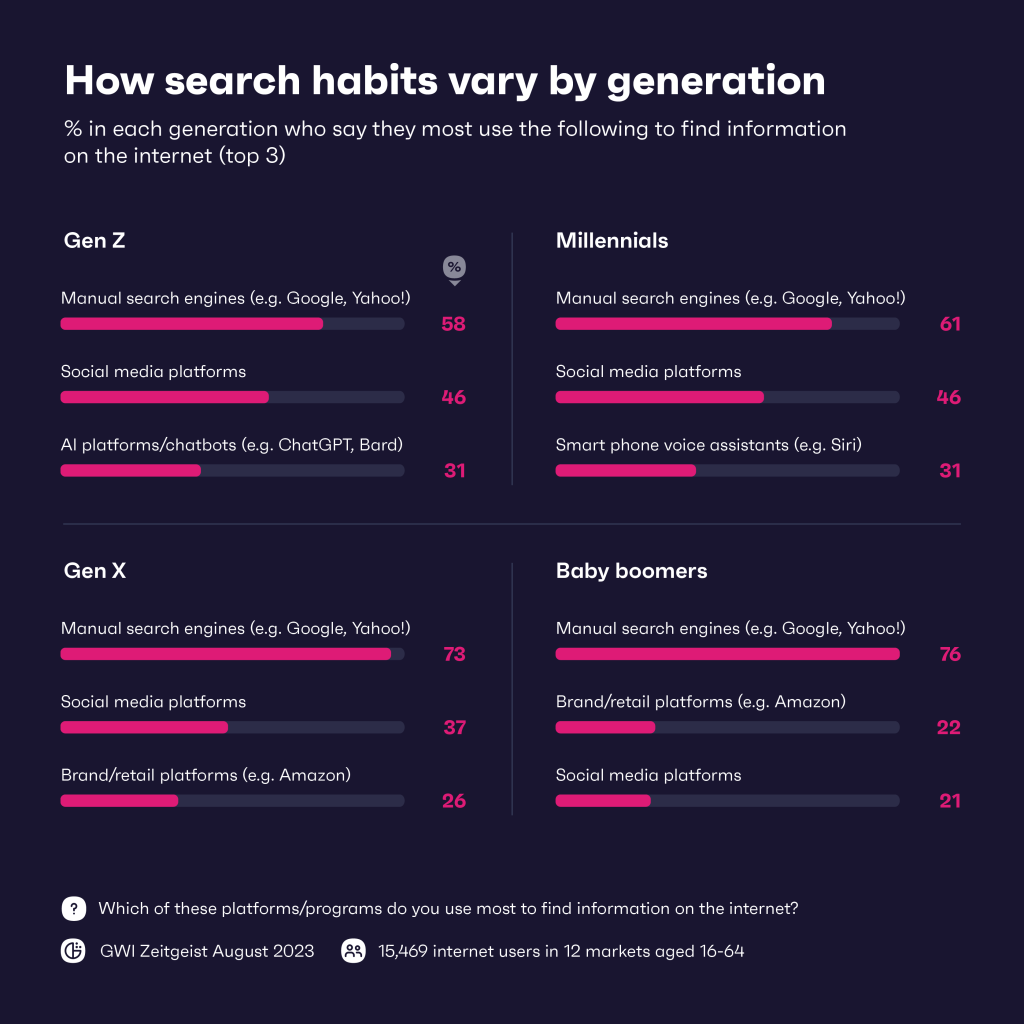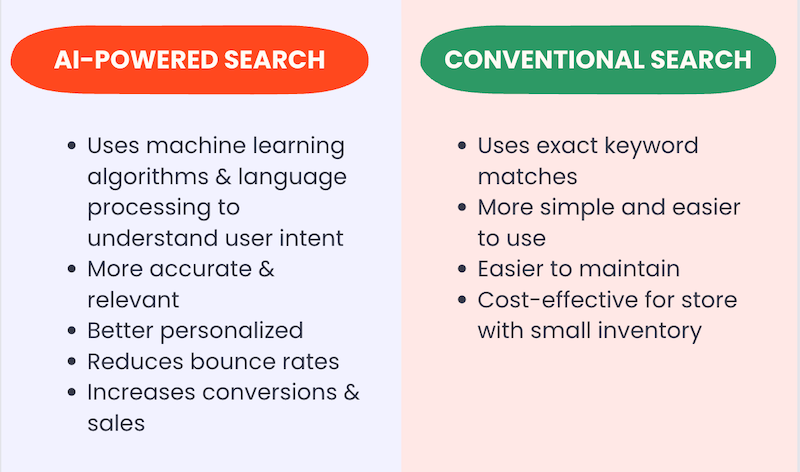Can AI search assistants replace traditional search engines ?

Imagine this: You’re juggling a work deadline, a group chat, and a quick lunch. You need answers fast. Traditional search engines have been your go-to for decades, but now, AI search assistants are stepping into the spotlight. Discover AI search assistants and see if they can replace the trusty search engines we’ve relied on for so long. Let’s dive in.
The Evolution of search technology
Search technology has undergone a remarkable transformation over the years. What began as simple keyword-based queries has now evolved into intelligent, AI-driven interactions that are reshaping how we access and interact with information. This rapid evolution raises an important question: Are traditional search engines becoming obsolete, or are we simply witnessing the next chapter in their evolution?
Basic algorithms and keyword matching
In the early days of the internet, search engines like Yahoo and AltaVista dominated the landscape. These platforms relied on basic algorithms that matched user queries with keywords found on web pages. While revolutionary at the time, this approach often led to cluttered and irrelevant results, leaving users to sift through pages of links to find what they needed.
- Early Days: Search engines like Yahoo and AltaVista relied on basic algorithms.
- Google Era: PageRank revolutionized search by prioritizing relevance and authority.
- AI Revolution: Now, AI search assistants like ChatGPT and Google’s Bard are redefining how we interact with information.
The question is: Are we witnessing the end of traditional search engines? Or is this just the next step in their evolution?
Try Wiseone for free with a 7-day pro trial
no credit card required
Comparing traditional and AI-powered search
Traditional search engines work by crawling the web, indexing content, and matching keywords. AI-powered search, on the other hand, uses natural language processing (NLP) to understand context and intent.
- Traditional search: great for quick facts, links, and straightforward queries.
- AI search: excels at understanding complex questions and providing conversational answers.
Natural language understanding (NLU)
AI search assistants can interpret queries like a human. For example, asking “What’s the best way to learn Spanish?” yields a detailed, conversational response instead of just a list of links.
Enhanced efficiency and accuracy
AI reduces the need to sift through multiple pages. It delivers precise answers, saving time.
Personalization capabilities
AI learns from your behavior. It tailors results to your preferences, making searches more relevant.

Key features of AI search assistants
AI search assistants aren’t just fancy chatbots. They come packed with features that make them stand out.
Visual and voice search capabilities
- Voice search: ask questions aloud and get instant answers.
- Visual search: upload an image and find related information.
AI-generated summaries and overviews
Instead of reading entire articles, AI can summarize key points for you.
Complex query processing
AI can handle multi-part questions. For example, *“Compare the benefits of solar energy vs wind energy in urban areas
Implications for SEO and digital marketing
The rise of AI search assistants is shaking up the world of SEO and digital marketing.
Shift from keyword optimization to user intent
- Old approach: stuff content with keywords.
- New approach: focus on answering user questions naturally.
Content quality and relevance
AI prioritizes high-quality, relevant content. Thin or spammy content won’t cut it anymore.
Adapting advertising strategies
- Contextual ads: ads must align with user intent.
- Conversational ads: AI may integrate ads into conversational flows.
Challenges and limitations of AI search
AI search assistants are impressive, but they’re not perfect.
Reliability and accuracy concerns
AI can sometimes provide incorrect or outdated information.
Handling real-time data
While traditional search engines excel at real-time updates (e.g., sports scores), AI assistants may lag.
Privacy and safety considerations
AI systems collect vast amounts of data. Ensuring user privacy is a major challenge.
Join the Wiseone community
They’re talking about us on social media.
Privacy and security features
In an age of data breaches, privacy matters. AI-powered search assistants prioritize your security while delivering a seamless experience.
- Ad-free search options: No distractions, just clean results.
- Strong data protection: Your information is encrypted and secure.
- Transparent handling: You know exactly how your data is used.
Use cases across different sectors
AI-powered search assistants aren’t just for personal use. They’re transforming industries by providing tailored solutions for specific needs.
- E-commerce: They recommend products based on your preferences and browsing history.
- Healthcare: They provide accurate medical information and even cross-check symptoms.
- Education: They help students and researchers access real-time data and academic resources.
Future outlook and emerging innovations
The future of AI-powered search assistants is packed with exciting possibilities. From augmented reality to ethical AI, the next generation of search tools will be even smarter and more intuitive.
- Augmented reality (AR) search: Imagine pointing your phone at a landmark and instantly getting information about it.
- Enhanced multilingual capabilities: Breaking language barriers with real-time translation.
- Ethical AI and fairness: Ensuring algorithms are unbiased and transparent.
Final thoughts
AI-powered search assistants are more than just tools, they’re your personal guides in the digital world. With features like natural language processing, personalized results, and predictive capabilities, they’re transforming how we search for information. Whether you’re a tech enthusiast or just someone looking for a better way to find answers, these assistants are here to make your life easier. So, the next time you’re multitasking, watching a show, texting, and eating, let an AI-powered search assistant handle the heavy lifting. You’ll be amazed at how much time you save.